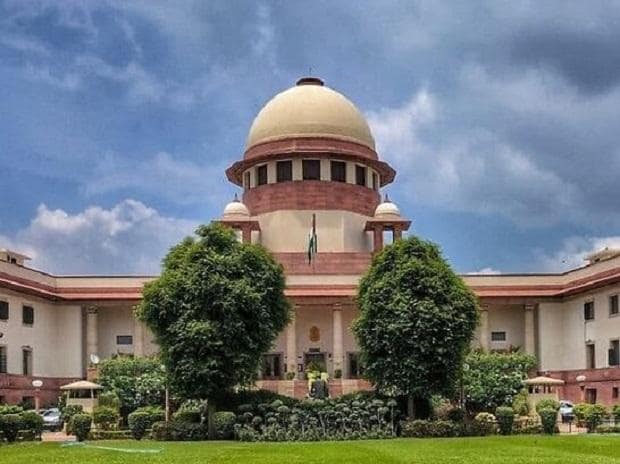[ad_1]
A five-judge Constitution Bench of the Supreme Court on Monday upheld the Modi government’s 2016 decision to demonetise Rs 500 and Rs 1,000 currency notes, saying the decision was about executive policy and could not be reversed.
The court rejected the 58 petitions challenging demonetisation and said the decision-making process of the government was not flawed.
The judgment, authored by Justice B R Gavai, was agreed to by judges S Abdul Nazeer, A S Bopanna, and V Ramasubramanian.
Justice B V Nagarathna faulted demonetisation in her dissenting judgment but did not quash it.
The judgment said there was consultation between the Centre and the Reserve Bank of India (RBI) for six months, indicating a “reasonable nexus between the measures undertaken and the object sought to be achieved” and, therefore, the demonetisation notification passed the test or doctrine of “proportionality”.
Test of Proportionality means examining whether the measure (demonetisation) was in proportion with the outcome sought to be achieved, like eradicating black marketing, terror financing, etc and whether there were consultations between the Centre and the RBI prior to the note ban, said Abhinay Sharma, managing partner, ASL partners.
“(The) demonetisation decision does not suffer from any legal or constitutional flaws. Petitions can be placed before an appropriate bench by the Chief Justice of India for deciding issues linked to the main issue relating to the validity of the demonetisation process,” the court said.
This means the petitioners who had not got relief from this verdict can take the issue before an appropriate Bench by the Chief Justice of India for deciding issues linked to the validity of demonetisation. However, legal experts said this issue could only be challenged if a review petition was filed against the verdict.
The Centre told the Supreme Court that the step was taken after extensive consultations with the RBI and that preparations were made before the note ban was enforced.
It had added the demonetisation exercise was a “well-considered” decision and part of a larger strategy to combat the menace of fake money, terror financing, black money, and tax evasion.
Dissenting view
Justice Nagarathna differed with the majority judgment and said it missed the main issue, namely that the RBI should initiate the demonetisation process and not the Centre.
“As this was reversed in 2016, the demonetisation decision was legally flawed,” she said.
She differed with the majority about Section 26(2) of the RBI Act, which states the government can, through a gazette notification, declare that a denomination of a bank note can cease to be legal tender, on the recommendation of the central board of the RBI.
She said the demonetisation process was illegal but it could not be reversed now. “Parliament should have discussed the law on demonetisation and it should not have been done by a gazette notification. However, the process was well-intended and its objective was to combat the black money, terror funding, hawala transactions, and other such practices.”
Political and legal reactions were swift.
Advocate Prashant Bhushan told Business Standard: “The RBI hardly had any time to examine the issue. The decision was made in an arbitrary manner and without application of mind. The decision is unfortunate as it will give the government a licence to take such reckless decisions in the future.”
Kirat Singh Nagra, partner at legal firm DSK Legal, said: “The judgment will send out a strong message to the public and business communities about the need to undertake financial transactions by legitimate means and the courts are not guided by a populist agenda or public outcry in matters of critical economic policies.”
Political reactions
The principal opposition party, the Congress, said it was “misleading and wrong” to say the Supreme Court had upheld demonetisation.
“The verdict has nothing to say on whether the stated objectives of demonetisation were met,” party General Secretary Jairam Ramesh said.
Former finance minister P Chidambaram, who had appeared for the petitioner, tweeted: “It is necessary to point out that the majority has not upheld the wisdom of the decision; nor has the majority concluded that the stated objectives were achieved. In fact, the majority has steered clear of the question whether the objectives were achieved at all.”
The ruling Bharatiya Janata Party hailed the “historic” order upholding the note ban. Former law minister and BJP leader Ravi Shankar Prasad said demonetisation proved to be the “biggest blow” to terrorism by curbing terror funding. It boosted income tax and cleansed the economy, he claimed.
On November 8, 2016, Prime Minister Narendra Modi announced a ban on currency notes of Rs 500 and Rs 1,000, stating that it would reduce the use of black money and counterfeit currency. However, several reports of distress among citizens due to long queues and cash shortages emerged, compounded by frequent changes in rules by the RBI over the next couple of months.
Hearing commenced on October 12, 2022, and the Bench had reserved their verdict on December 7.
The RBI had earlier admitted in its submission that there were “temporary hardships” and they, too, are an integral part of the nation-building process, but there was a mechanism by which problems that arose were solved.
[ad_2]
Source link



